

Perhaps one area in which the Assembly has made the greatest impact over the past seven (7) years has been in the area of Education and Development of Human Capital generally. It fits into our National Policy of Human Capacity Development and our belief that the key to our development lies in the development of our people, the greatest assets we have.
State of Education in 2000
In the year 2000, the state of education in the then Adansi West District Assembly of which Obuasi was part was as follows:
Total number of teachers (1,467) was distributed as follows:
K. G. - 222
Primary - 723
Junior Secondary School - 519
Statistics of Basic Education Certificate Examination (2001)
Number of candidates - 3,054
Number of Boys - 1,620
Number of Girls - 1,434
Number of Boys passed - 1,110
Number of Girls passed - 865
Percentage (%) passed - 64
Percentage (%) failed - 36
- Juvenile Delinquency was on the ascendancy and quite a number of school children were involved in criminal activities.
- Night Clubs turned out to be the abode of most pupils who also learnt to drink and smoke.
State of Education 2001 – 2007
My administration found this state of affairs completely unacceptable and decided on an action programme to reserve this trend. A number of measurers were put in place to address the issue. The most telling of these measurers included the following:
1. Construction of Schools in each community to reduce excessive walking.
2. Assembly sponsored the organization of Mock Examination for B. E. C. E. candidates.
3. Ban on playing snooker, table tennis, video games, etc.
4. Ban on attendance of Night Clubs by pupils.
5. Construction of teachers’ quarters and various incentive packages to teachers (Best Teacher Award).
6. Imposition of a curfew on children under 18 years – 8.00 p.m. to 5.00 a.m.
7. Award to best performing schools (Basic Education Certificate Examination).
As a result of these measurers, there were considerable improvements in teaching and learning and the District/Municipality became the best in the country in the Basic Education Certificate Examination results i.e. attaining the first (1st) position - a position we have maintained for four (4) consecutive years. The table below shows the ever improving performance of the Municipality over the years.
Municipality Tops in “Ayekoo” Awards
As if to prove our resilience in the development of education, a research revealed that out of the 40 best Junior Secondary School in the country, Obuasi alone accounted for 8 of these schools – second to none in the whole country.
The “Ayekoo Foundation is a Non-Governmental Organization which conducted a study to find the best 40 schools in Ghana at the Basic Education Certificate Examination level. Out of the 40 schools, 8 came from Obuasi. In fact St. Philips Junior Secondary School was adjudged the second (2nd) best in the country. The Primary Schools are the following:
School Feeding Programme
The Government of Ghana in partnership with the New Partnership in Africa’s Development (NEPAD) Secretariat in South Africa the Netherlands and other Donor countries such as U.K., USA Canada among others came up with the idea of implementing a School Feeding Programme in developing countries.
Five (5) communities namely, Mampamhwe, Jimiso Kakraba, Sansu, Apitikooko and Mamiriwa were selected as pilot communities to benefit from the programme in the Obuasi Municipality.
Management of the Programme
The Municipal implementation committee made of the 14 members with the chairmanship of the Municipal Chief Executive manages the programme.
Assembly’s Support for the Programme
The Obuasi Municipal Assembly expended ¢689,000,000 to provide kitchens, canteens and platforms for water tanks in all the five (5) pilot communities.
Implementation of the Programme
Out of the five (5) communities selected for the programme only two namely Mampamhwe and Jimiso Kakraba are benefiting from the programme which took off in July, 2006.
An appeal by the Assembly for the expansion of the programme to cover other schools in the Municipality is receiving the desired attention at the National Secretariat of the Programme.
Transfer of Funds by the GSFP Secretariat and Obuasi Municipal Assembly’s Financial Support for the Programme
Since its inception in July, 2006 the Government has transferred ¢344,211,000 with the Assembly providing ¢41,299,000 as additional support for the implementation of the programme in the two (2) communities.
Achievement
A significant achievement of the programme in the two pilot schools is the increase in enrolment and retention of pupils from an initial enrolment level of 561 in Jimiso Kakraba and Mampamhwe to 821 an increase of 46.3% in school enrolment.
In addition farmers within the area have stepped up their activities to take advantage of the ready market offered by the GSFP.
Minor illnesses associated with poor nutrition among school children have delivered considerably and this has translated into high school attendance.
Date Created : 11/27/2017 6:50:44 AM


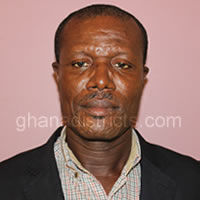
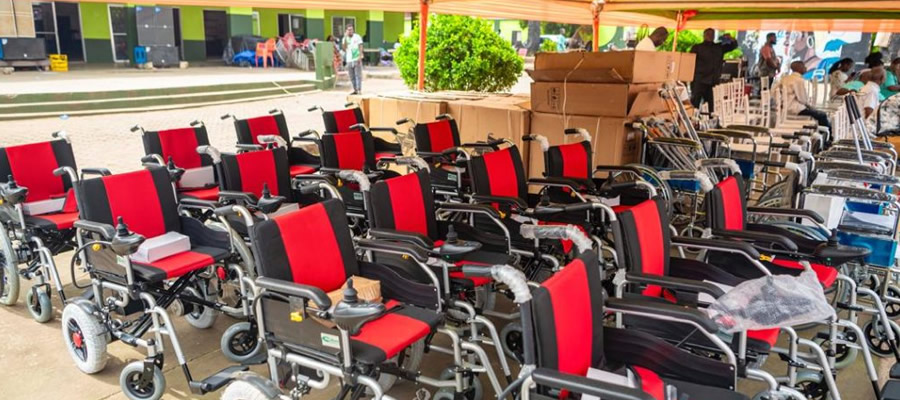
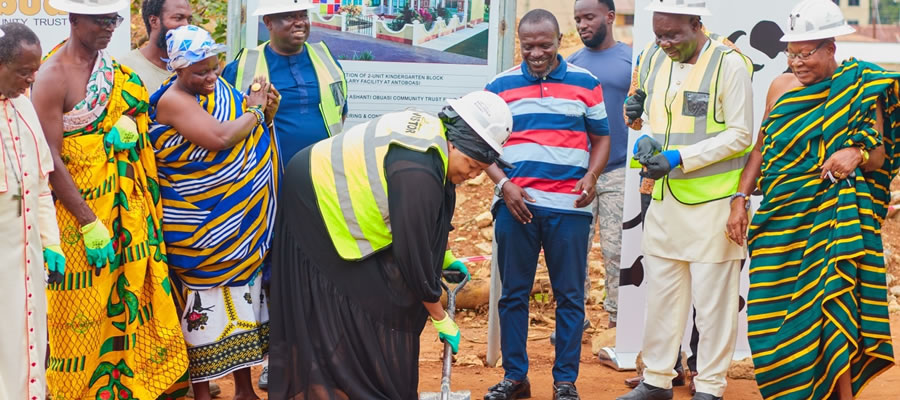

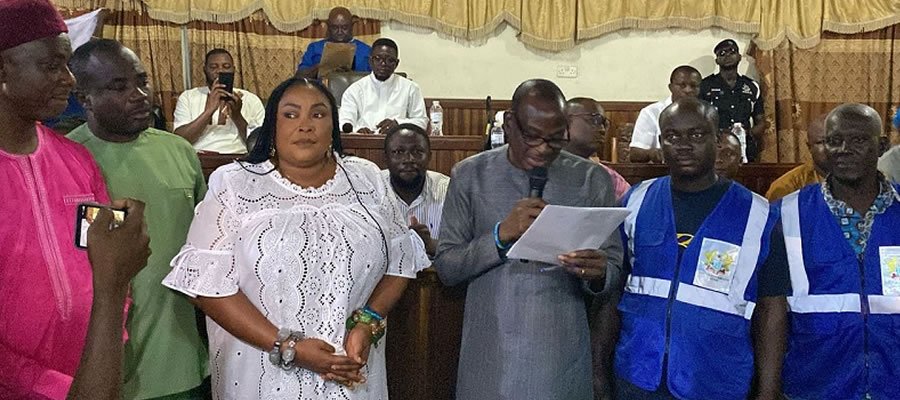


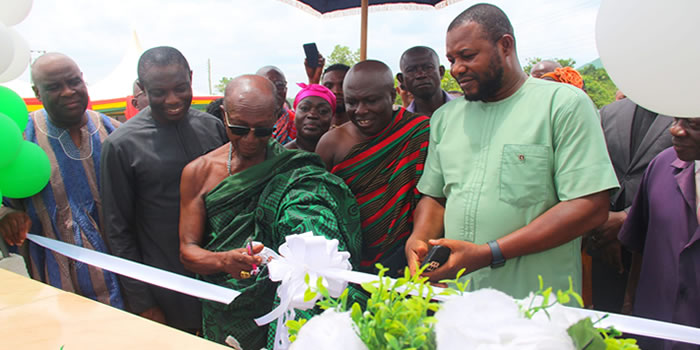
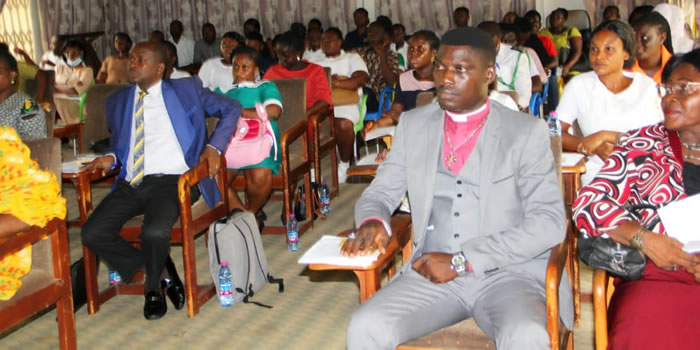


 facebook
facebook
 twitter
twitter
 Youtube
Youtube
 +233 593 831 280
+233 593 831 280 0800 430 430
0800 430 430 GPS: GE-231-4383
GPS: GE-231-4383 info@ghanadistricts.com
info@ghanadistricts.com Box GP1044, Accra, Ghana
Box GP1044, Accra, Ghana